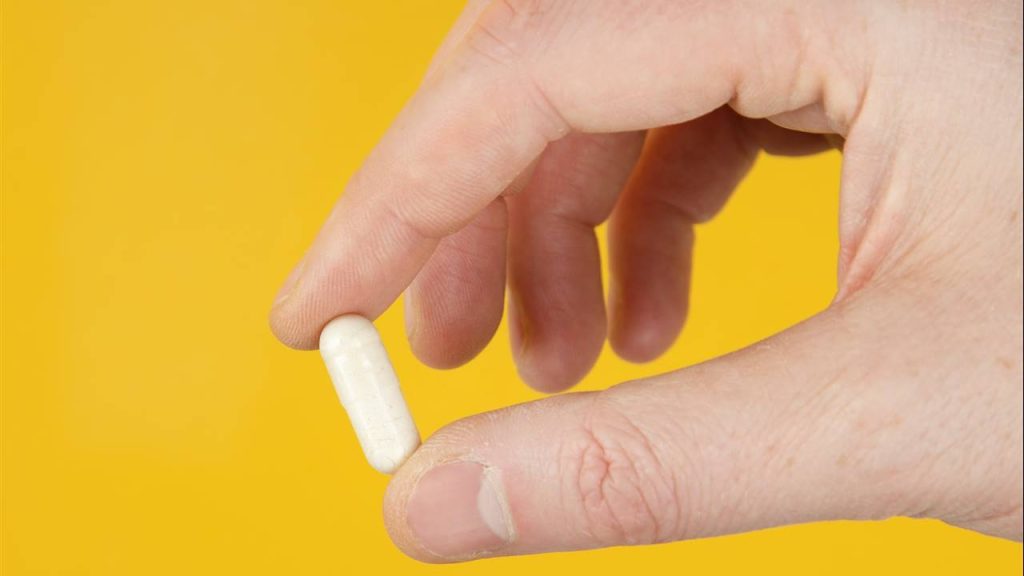Winter is just around the corner and with it the next wave of flus and colds. In the environment resonates the well-known advice: “if you catch a cold, take vitamin C” to improve the immune response. However, it should be qualified.

Vitamin C can be bought in the pharmacy, in herb dietetics and even in supermarkets in different formats, in dragees, powder, in jelly beans and even in shots. Many people take it when they feel the first symptoms of cold or flu, however, there is no evidence that vitamin C in high doses cures colds.
IT’S BEST TO GET VITAMIN C FROM FOOD
What is certain is that vitamin C deficiency increases vulnerability to infections. Therefore, taking vitamin C can have a preventive sense, not so much as a treatment once the symptoms have appeared. The most beneficial thing is to get vitamin C from food: it is not difficult, just take three or four pieces of fruit a day and some fresh vegetables (red pepper is especially rich in this vitamin). These foods, in addition to vitamin C, provide fiber and many other nutrients that act in synergy, something that cannot be said of pills.
WHAT ARE THE DAILY NEEDS OF VITAMIN C?
The required dose of vitamin C varies depending on age:
- Infants 0 to 6 months: 40 mg
- Infants 7 to 12 months: 50
- Children 1 to 3 years: 15 mg
- Children 4 to 8 years of age: 25 mg
- Children 9 to 13 years of age: 45 mg
- Adolescents (males) 14 to 18 years of age: 75 mg
- Adolescents (girls) 14 to 18 years of age: 65 mg
- Adult men: 90 mg
- Adult females: 75 mg
- Pregnant women: 85 mg
- Breastfeeding women: 120 mg
To get the vitamin C you need, it is recommended to take a minimum of five servings of fresh vegetables and fruits a day. The vitamin C content is particularly high in citrus fruits, kiwis, peppers, cabbage, potatoes, berries and fresh parsley. In seasonal foods and organic products, the proportion of vitamin C can be expected to be higher.
VITAMIN C IS NOT SOLELY RESPONSIBLE FOR THE BODY’S DEFENSES
Moreover, vitamin C is not the only miracle nutrient that boosts immunity. The most important thing for the immune system is to eat a varied diet adjusted in energy. In addition to vegetables and fruits, you also have to take whole grain products.
It’s not just about vitamins, but also about fiber, phytonutrients, and much more. You should not eat too many or too few calories, as both cases put pressure on the immune system.
In addition, other vitamins and nutrients are needed for a stable defense in the body. They all have their function in the immune system, but that does not mean that you need to include multivitamins in your day to day. A varied and balanced diet provides all the nutrients.
Only people who are elderly or suffer from a disorder of intestinal absorption may need vitamin supplements. Toxic habits and stress increase needs, but the point is to remedy these problems, not take supplements. A dietitian-nutritionist or doctor can decide when it is really necessary to take a supplement.
IS EXCESS VITAMIN C POSSIBLE?
If you ingest more vitamin C than you need, your body will regulate its absorption and eliminate the excess through urine. So, the old truism “a lot helps a lot” doesn’t apply in this case. If you eat well and take a supplement, it is very possible that the added dose will go down the toilet.
However, if more than 3 grams of vitamin C are consumed per day, many people may experience gastrointestinal discomfort, such as nausea, stomach cramps, and diarrhea.
Too much vitamin C can also increase the risk of developing kidney stones in some susceptible people. During vitamin C metabolism, some is broken down into oxalic acid, which in turn makes up most kidney stones. Therefore, those affected are advised not to regularly take preparations with high doses of vitamin C.
Dietary supplements of vitamin C should not be given to people suffering from hemochromatosis, which is an inherited disease of iron metabolism that results in absorption of this mineral in the digestive tract greater than the daily losses of the body, which causes an excessive deposit of iron in the body.






